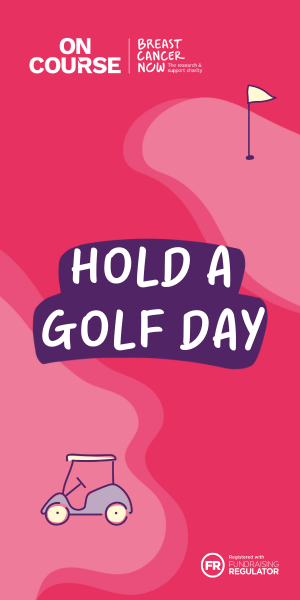A new report from Syngenta and Ipsos confirms golf is yet to overcome reputational issues. Here’s what Charlotte thinks.
It’s no secret that golf has long had a reputation as being an exclusive sport reserved only for a limited demographic.
But despite experiencing unprecedented demand in the past few years, a new social listening report from Syngenta and Ipsos has found that golf is yet to persuade the public it’s a game for all.
The study analysed 16.1 million social media posts, shares, comments and blogs over three years. The aim was to understand what is being said about golf online and help businesses respond with customer-centric solutions.
The report highlights multiple successful projects that are making golf more diverse and inclusive – like Black Girls Golf in the US and the UK’s Muslim Golf Association. But it also confirms that more work is required to overcome the sport’s reputational issues and successfully welcome a wider audience.
Do we understand what people want and need from golf?
Let’s be honest, the findings of the report don't really come as a surprise, do they?
One quick glance around at your local golf club or driving range will tell you that golf is still a long way off from being the inclusive and diverse sport we wish it was.
Speaking about the findings, Claire Martin, Ipsos Social Intelligence Researcher, said: “Golf is aware of its image problem and is trying hard to diversify, but the messages are not always reaching wider audiences and people outside the sport.”
And I think she’s hit the nail on the head: We’re not getting through to the people we need to get through to.
Why? Because I don’t think we really understand what people want or need from the game.
As an industry, we’ve adopted a one-size-fits-all approach to getting more people into golf, in most instances applying the same frameworks and initiatives regardless of demographic.
And it isn’t working.
So it was refreshing to read Brandon Bell’s advice as part of the report. The People and Organizational Development Lead for Syngenta North America said: “As a starting point, use local demographic data to better understand the scale of the opportunity to engage with underrepresented groups, then invite these groups to take a survey or join a focus group so you can learn more about their wants and needs – and how you might address those.
“By creating an environment and experience where minority groups feel welcome and valued – and this is reflected in your club imagery and communications – this will help other diverse groups understand that this is a place where they could belong.”
Whilst it’s not exactly ground-breaking, understanding what underrepresented groups – like women – want and need from golf is the only way we’ll truly diversify the game.
Female Health First: A blueprint for golf?
The solutions off the back of the Syngenta and Ipsos report echo an initiative by The Gym Group – low-cost, 24/7 gyms nationwide – and The Well HQ. Together, they recently launched Female Health First; a pilot programme to ensure trainers and facilities genuinely meet midlife women's needs.
For background, The Gym Group aspires to be gender-equal by 2030. And if they are to hit parity, the key demographic in the mix is women over 40 – so not too dissimilar to golf.
After putting 50 male and female trainers of all ages through an intensive six-week course, the pilot includes pelvic floor workshops that are increasingly popular nationwide, Functional Female Fitness classes and a team of personal trainers able to speak the language of the female body. It’s now being rolled out much wider, and by the end of 2024, 170 trainers and gym representatives will have completed the programme, meaning a far more welcoming and inclusive environment for women at gyms across the country.
It's a real gear change, and one I think the golf industry could learn so much from.
Are we genuinely addressing the needs of women and other underrepresented groups at golf clubs? And do we even know what those needs are?
Until we can honestly answer those questions with a firm “yes”, golf will always be stuck with its outdated reputation as an exclusive sport.
What do you think? I'd love to hear from you! Email me at [email protected].















